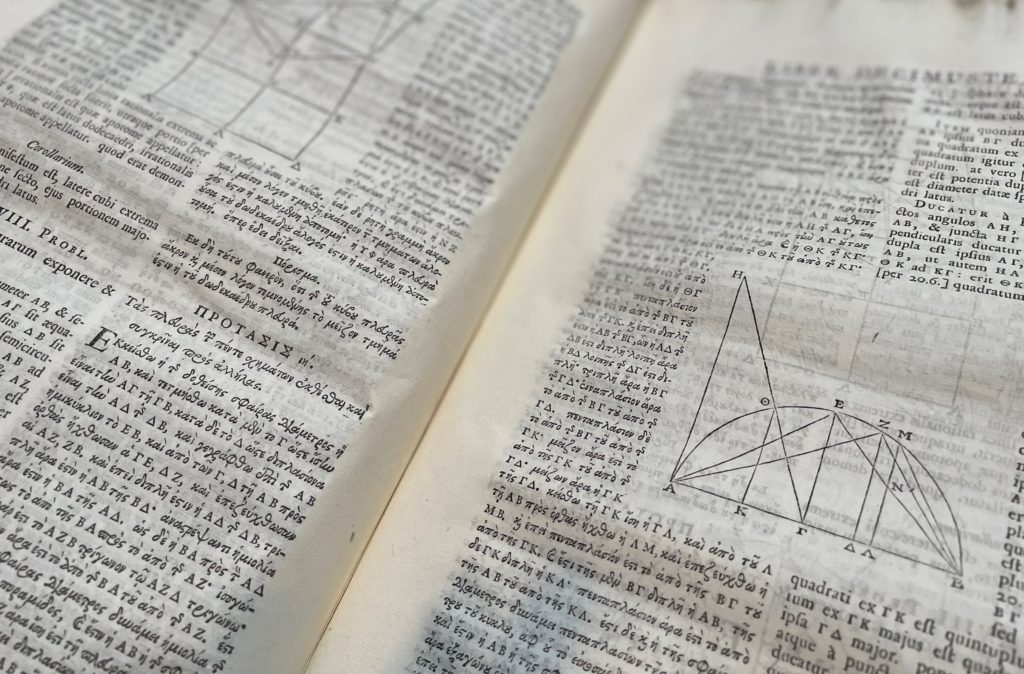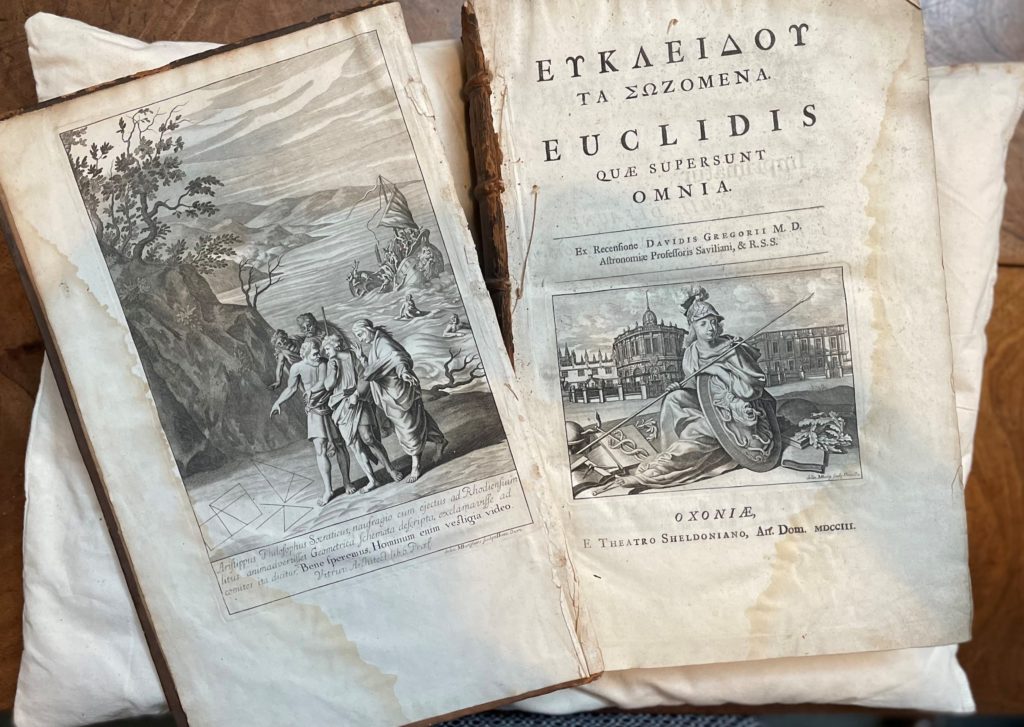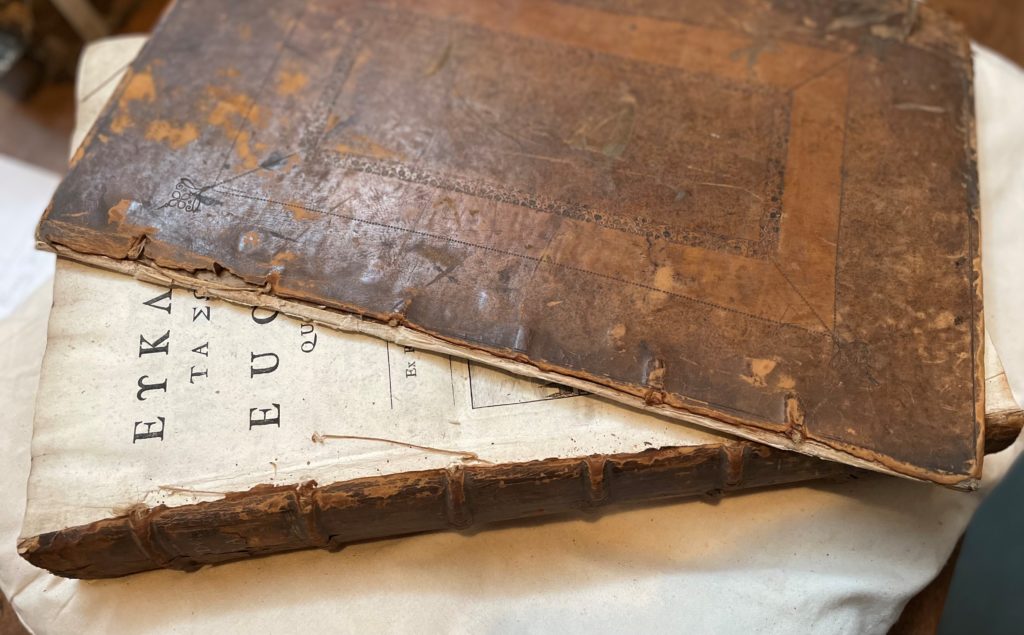David Gregory’s first complete edition of Euclid (1703)
 David Gregory (1659-1708) was a Scottish mathematician, best known for his Astronomiae Physicae et Geometricae Elementa (1702) – the first published work to apply the language of Newtonian gravitation to astronomy. In 1683, Gregory was appointed Professor of Mathematics at Edinburgh University. Following his move to England, he was elected a Fellow of the Royal Society in 1691 and took up the Savilian Professorship of Geometry at Oxford University the same year. Gregory was an acquaintance of Isaac Newton and in 1694 the two mathematicians met to discuss revisions for a second edition of Newton’s Principia.
David Gregory (1659-1708) was a Scottish mathematician, best known for his Astronomiae Physicae et Geometricae Elementa (1702) – the first published work to apply the language of Newtonian gravitation to astronomy. In 1683, Gregory was appointed Professor of Mathematics at Edinburgh University. Following his move to England, he was elected a Fellow of the Royal Society in 1691 and took up the Savilian Professorship of Geometry at Oxford University the same year. Gregory was an acquaintance of Isaac Newton and in 1694 the two mathematicians met to discuss revisions for a second edition of Newton’s Principia.
 This, however, is Gregory’s commentary on Euclid’s Elements, one of only 250 copies published by Oxford University Press in 1703, and the first complete edition of Euclid in Greek. The stunning frontispiece, engraved by Michael Burghers, depicts a group of men shipwrecked on an island pointing to triangles and other geometrical markings in the sand – a sign that civilisation exists on the island and all will be well. The frontispiece was later used for other mathematical and scientific works.
This, however, is Gregory’s commentary on Euclid’s Elements, one of only 250 copies published by Oxford University Press in 1703, and the first complete edition of Euclid in Greek. The stunning frontispiece, engraved by Michael Burghers, depicts a group of men shipwrecked on an island pointing to triangles and other geometrical markings in the sand – a sign that civilisation exists on the island and all will be well. The frontispiece was later used for other mathematical and scientific works.
Euclid’s Elements remains one of the most influential works in the history of mathematics and was the principal textbook on the subject until the late 19th century. It would have been an important addition to the early library at the Institution and, once restored, can be used in our educational programmes to inspire the next generation of mathematicians.


